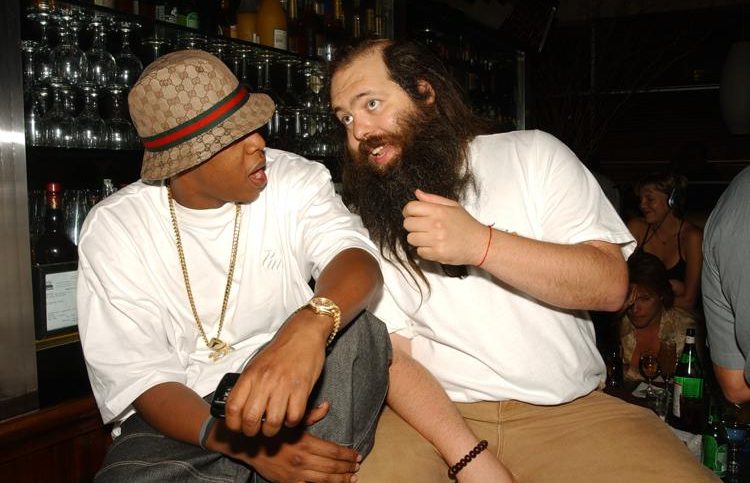If you are not familiar with the Def Jam record label, you are almost certainly familiar with their work. As the label that introduced the world to everything from Aerosmith and Run DMC’s collaboration of “Walk this Way”, to Public Enemy, Beastie Boys, and LL Cool J’s litany of hits, to more recently Jay-Z’s role as CEO – this has long been the center of hip hop. By the time you get to the individual efforts of the two brains behind this iconic company, you have tentacles that reach into nearly every corner of the music industry. Rick Rubin is arguably the biggest and most influential producer in the world – period. And he doesn’t even play an instrument. This not arbitrary fact aside, his penchant for creating and recognizing hits has kept him at the top of a changing game, far after his peers fell off. Russell Simmons, also founder and owner of Phat Farm, and 360 Hip Hop, is his partner in crime here. Eventually Simmons sold Def Jam to Universal Music for a cool USD 120 million. As they now are set to turn 30 – as significant a number you can have when your bread and butter is a genre of music about the same age – bazaar looks back at how it all happened.
In 1984 Rick Rubin is a 20-year-old heavy-metal aficionado from a Jewish Long Island neighborhood. He fancies himself a musician and forms a high-school punk band calling themselves The Pricks, but Rubin’s musical skills are notable mostly by their absence. He moves to New York City and studies philosophy at NYU. He becomes friends with Jazzy Jay, a prominent DJ in Afrika Bambaataa’s Zulu Nation, who teaches him the basics of hip-hop production. Rubin borrows a little cash from his wealthy parents and together he and Jay produce “It’s Yours” for rapper T La Rock. It’s the first release on Def Jam (though distributed by Arthur Baker’s Streetwise label) and it sells in its thousands from the nascent company’s first office – Rubin’s Greenwich Village dorm room.
Meanwhile, Russell Simmons is a 26-year-old former drug dealer from Queens, turned hip-hop impresario, who has made his name putting on block parties in Harlem and managing Kurtis Blow and Run DMC, the band that included, of course, his younger brother, Joseph “Run” Simmons.
Jay introduces Rubin to Simmons at Danceteria – a now legendary Manhattan nightclub – where rock kids, new wave hipsters and B-boys mix side by side. Simmons is impressed by Rubin’s ear for a hit record, and Rubin by the older man’s evident street smarts and business savvy. Investing a few thousand dollars each, Def Jam proper is born. The first official release (with a Def Jam catalogue number) is LL Cool J’s “I Need a Beat”, after the 16-year-old mails a demo to the NYU dorm. It’s written by LL, Rubin and a friend of Rubin’s called Adam Horovitz, then part of a thrash punk ensemble called the Beastie Boys. It sells more than 100,000 copies and within a year Simmons has cut a distribution deal with major label Columbia (the first of its kind in hip-hop). The rest, as they say, is history.
Of course, Def Jam’s success throughout the rest of the decade owed much to being in the right place at the right time – it didn’t just move hip-hop into mainstream culture, but benefited from that movement, too. Nonetheless, hindsight illuminates a number of clever decisions that didn’t necessarily look so obvious at the time; none more so than pairing Run DMC with Aerosmith on the cover of “Walk This Way”, the video which finally took hip-hop on to the notoriously rap-phobic MTV.
This fall, the label – now part of the sprawling Universal Music Group – is celebrating its three-decade run with a limited-edition retrospective box, Def Jam 30, to be released on LP and CD on September 16, and a concert that will bring together some of the label’s stars, past and present, at the Barclays Center, in Brooklyn, on October 16.
The retrospective box, Def Jam 30, will include Selections From the Roots of Def Jam, a 13-track compilation assembled by Mr. Rubin, and including music that inspired him to start the label, and Def Jam Recordings Greatest Hits, a two-disc, 30-song overview of the label, assembled by the producer Kyambo “Hip Hop” Joshua. The sets also include a booklet with a history of the label by Dan Charnas and a Def Jam T-shirt.










